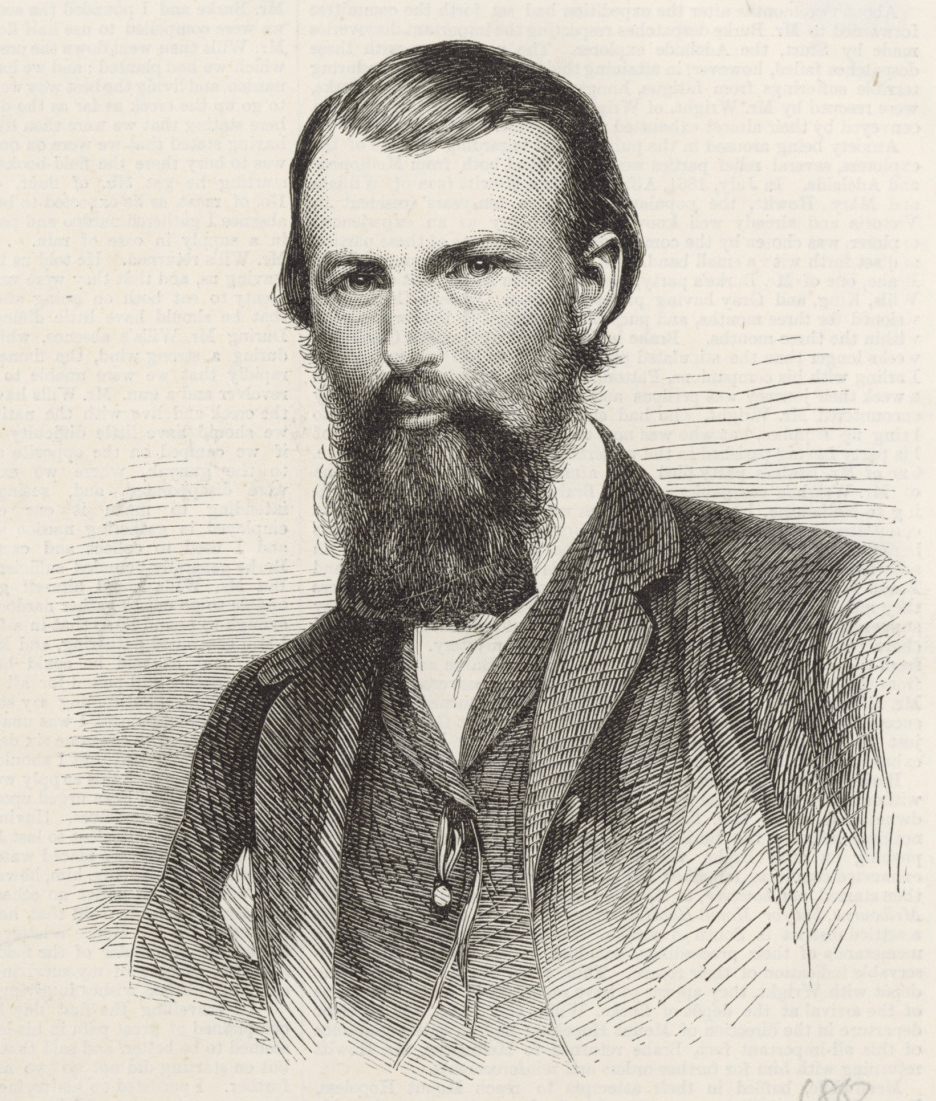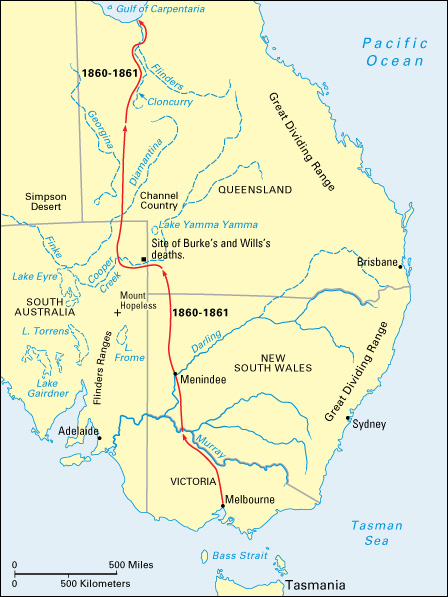Wills, William John (1834-1861), was a British-born explorer of Australia . He died during the first expedition that crossed the Australian continent from south to north.

Wills was born in Totnes, in the county of Devon, England , on Jan. 5, 1834. In 1852, Wills and his brother Thomas migrated to Australia. The two men became shepherds in Deniliquin, a town in the Riverina region of New South Wales . They later moved to Ballarat, Victoria . William Wills studied surveying and later worked at astronomical and magnetic observatories in Melbourne .
In 1857, the Royal Society of Victoria, an organization that promotes science and discovery, organized the Victorian Exploring Committee. It provided support for an expedition to cross Australia from Melbourne in the south to the Gulf of Carpentaria in the north, a distance of about 2,000 miles (3,200 kilometers). Wills’s mentor recommended him for a position in the expedition. Expedition leader Robert O’Hara Burke chose Wills to act as surveyor and astronomer on the trip.

The expedition party of 19 men, wagons of supplies, horses, and camels left Melbourne on Aug. 20, 1860. It arrived in Menindee, on the Darling River , in early October. At Menindee, Burke’s second-in-command resigned, and Burke appointed Wills to that position. Burke left some of his men and supplies at Menindee with instructions to follow him soon. The rest of the expedition arrived at Cooper’s Creek (now known as Cooper Creek) in southwestern Queensland in November. Burke then split the group again, leaving several men at Cooper’s Creek to maintain a base camp under the command of William Brahe. Burke, Wills, John King, and Charles Gray continued north, completing their trek to the Gulf of Carpentaria on Feb. 11, 1861.
The four men then began the return trip. Gray died during the journey. Burke, Wills, and King arrived at the Cooper’s Creek camp on the evening of April 21. They found the camp abandoned, but Brahe had left supplies buried under a tree that became known as the “Dig Tree.” Burke determined that their best chance for survival was to travel about 150 miles (240 kilometers) to Mount Hopeless in the Flinders Ranges of South Australia. The men were exhausted and their progress was slowed by the deaths of their last two camels.
Burke and Wills died between June 28 and the first few days of July. Historians do not know the exact dates. Several rescue parties were sent to discover the fate of the explorers. In September, a search party found John King alive. Yandruwandha people, Aboriginal people who lived in the region, had nursed him back to health. The Victorian government recovered the bodies of Burke and Wills and brought them to Melbourne, where a state funeral was held on Jan. 21, 1863.
